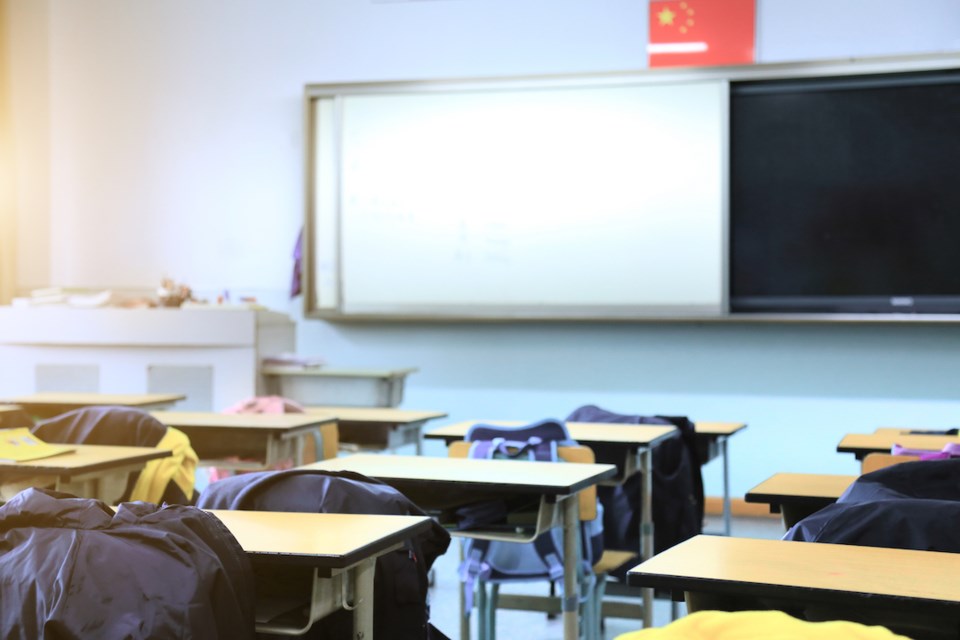A new report shows that School District No. 57 (SD57) is not making improvements in student learning including literacy and numeracy.
At its Wednesday public meeting, SD57’s board of education reviewed the year one summary of its five-year strategic plan.
Titled "Framework for Enhanced Student Learning Report", the data for the 2020-21 and 2021-22 school years shows that SD57 has not been effective in intervention strategies for both struggling readers and students struggling with numeracy.
This data must be reviewed annually to evaluate the impact of the strategic plan and identify any adjustments needed.
“We see many of our learners below expectations for grade level reading,” said Superintendent Cindy Heitman, explaining that some of the data looked at a cohort of students comparing their performance in Grade 4 with their performance in Grade 7.
Heitman said in the 2017/18 school year, 65 per cent of Grade 4 students were meeting expectations for literacy but when that group of students were in Grade 7, it only rose to 70 per cent and there was no change in 2018.
“What that tells us is that when students are identified as having reading struggles in Grade 4, the interventions that were in place and the strategies we were using to help students haven’t made a large impact on those students when they reach Grade 7.”
The 2022 Benchmark Assessment for literacy also showed very low numbers, including that only 34 per cent of Grade 1 students are on track for numeracy and that number drops to 26 per cent for Indigenous students.
The same type of comparison data also showed early interventions are not making a difference for numeracy outcomes, either.
The 2022 SNAP Numeracy Assessment found that 59 per cent of Grade 1 pupils are on track for numeracy, which drops to only 55 per cent of Indigenous students. The Grade 10 numeracy graduation assessment for 2020/21 showed less than 50 per cent of students were on track.
“We have some work to do as we develop the use of these assessments and how it can inform our instruction, this is the very beginning for us, but now we know,” said Heitman. "This data has created more questions for us and the work we want to do going forward is really looking at what schools have demonstrated promising practicing numeracy and how can we replicate it?”
Heitman said SD57 is working to shift mindsets from mathematics to numeracy, which focuses on understanding numbers and applying them.
One of the requirements of the report is to recommend adjustments to the district’s strategic plan based on this information and Heitman noted SD57 will be amplifying existing strategies including professional development and grad coaches.
The report was also required to look at human and social development in the district and the data shows this is another area that SD57 is also not making any progress in.
From 2016 to 2021, less than 70 per cent of students in SD57 reported feeling safe, and for the same time period student belong also reported to be below 50 per cent.
“We know that more than 30 per cent of our students don’t feel safe at school and I have talked about this – that is not okay. I don’t want that to be my child. You don’t want that to be your children,” said Heitman.
She said when students feel welcome safe and connected to the school, it's an indicator of success and they are working on strategies to see this data improve.
“I think our district is creating that sense of belonging through our commitments to truth and reconciliation and decolonizing our system. Through our commitments of increasing our mental health supports, and through our commitments of increasing our equity we should see students beginning to feel they belong.”
Heitman noted that COVID-19 has also had an impact on learning outcomes and this is something superintendents are seeing across the province.
“I want to acknowledge that this evidence is hard to read, and it can feel deflating for us as educators but I need to commend the work of this district and the work that is happening,” said Heitman. “We know the information, we know what we need to do and we need to continue on the path that has been charted for us.”



